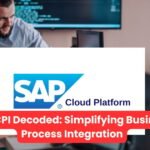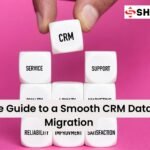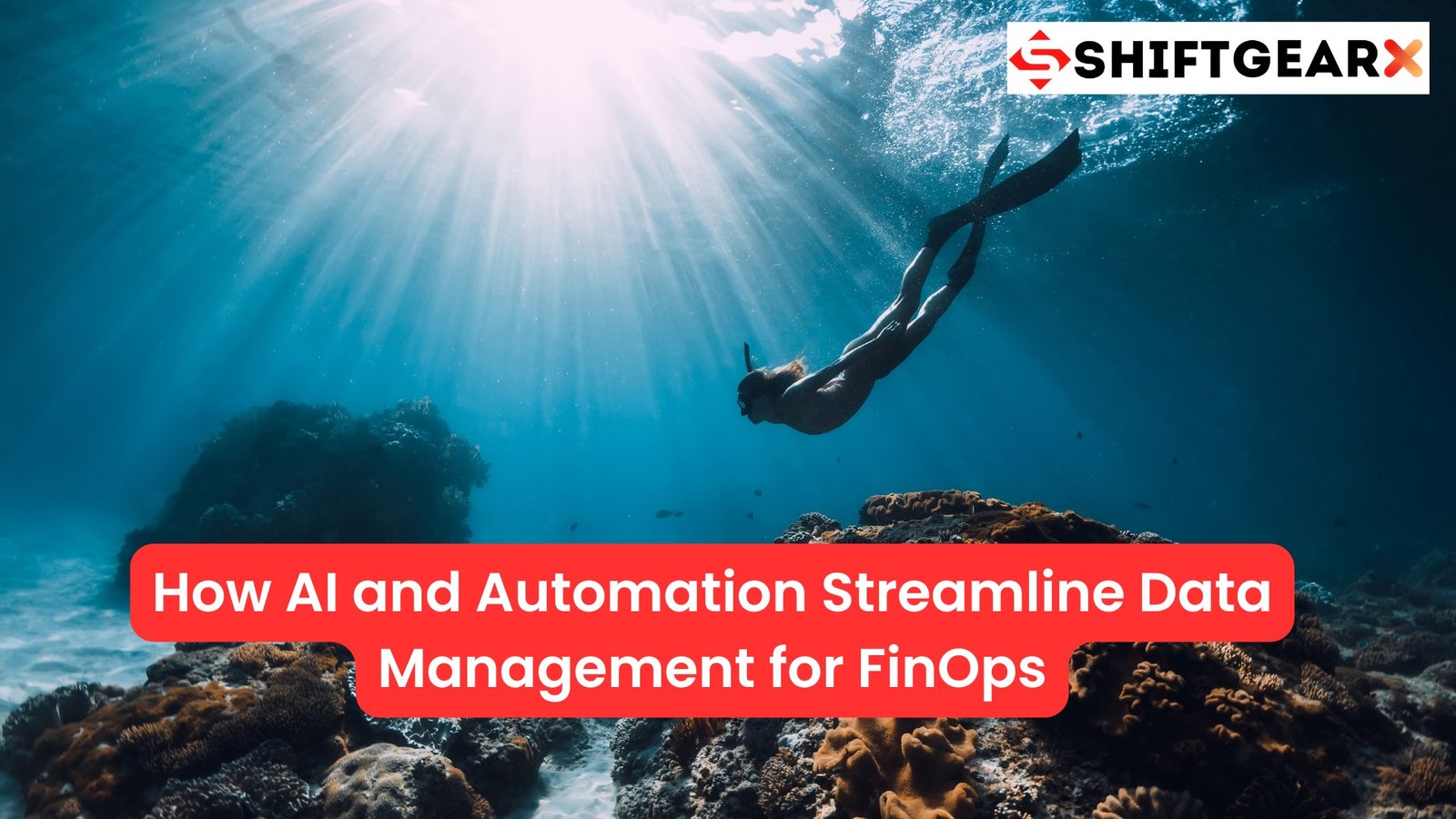Enterprise Resource Planning (ERP) systems are integral to modern businesses, providing a unified pwlatform to manage various functions such as finance, human resources, supply chain, and customer relations. With numerous ERP solutions available, selecting the right one can be daunting. This article delves into the top five ERP systems, highlighting their industry-specific features to help you make an informed decision.
1. Microsoft Dynamics 365
Overview
Microsoft Dynamics 365 is a versatile ERP solution designed to cater to a wide range of industries, including retail, manufacturing, finance, and healthcare. It integrates seamlessly with other Microsoft products, making it a popular choice for businesses already using Microsoft Office and Azure services.
Key Features
- Financial Management: Streamlines financial operations, automates workflows, and provides real-time financial insights.
- Customer Relationship Management (CRM): Enhances customer engagement through integrated sales, marketing, and customer service tools.
- Supply Chain Management: Optimizes inventory, production, and logistics processes.
- Human Resources: Manages employee data, payroll, and performance tracking.
- Project Management: Facilitates project planning, execution, and monitoring.
Industry-Specific Applications
- Retail: Dynamics 365 for Retail offers omnichannel capabilities, personalized customer experiences, and robust inventory management.
- Manufacturing: Dynamics 365 for Finance and Operations includes features like resource planning, shop floor control, and IoT integration.
- Healthcare: Provides tools for patient management, compliance tracking, and operational efficiency.
Strengths
- Seamless integration with Microsoft products.
- Flexible deployment options (cloud, on-premise, hybrid).
- Strong analytics and reporting capabilities.
Challenges
- Requires careful selection of implementation partners due to varying quality among resellers.
- Limited CRM functionalities compared to specialized CRM solutions.
Here is a table highlighting the strengths and weaknesses of Microsoft Dynamics:
| Aspect | What Microsoft Dynamics Does Well | Areas for Improvement |
|---|---|---|
| User Interface | Intuitive and user-friendly interface | Can be complex for new users initially |
| Customization | Highly customizable to fit specific business needs | Customization can be time-consuming and may require expertise |
| Integration | Seamless integration with other Microsoft products | Integration with non-Microsoft products can be challenging |
| Reporting and Analytics | Strong reporting and analytics capabilities | Reporting can be complex to set up |
| Cloud Services | Robust cloud-based solutions | Cloud performance can vary based on internet connectivity |
| Support and Community | Extensive support and large user community | Support can sometimes be slow or require premium plans |
| Scalability | Easily scalable for growing businesses | Costs can increase significantly with scaling |
| Security | Advanced security features | Can be complex to configure properly |
| Mobility | Good mobile access and apps | Mobile apps can lack some features available on desktop |
| Pricing | Flexible pricing models | Can be expensive, especially for smaller businesses |
This table provides a balanced view of the strengths and weaknesses of Microsoft Dynamics, helping potential users understand what to expect.
2. SAP S/4HANA

Overview
SAP S/4HANA is a next-generation ERP solution designed for large enterprises. It leverages the in-memory computing capabilities of SAP HANA to provide real-time data processing and analytics.
Key Features
- Advanced Financial Management: Facilitates financial closing, treasury management, and real-time financial reporting.
- Supply Chain Management: Enhances inventory management, production planning, and logistics.
- Manufacturing: Integrates production planning, quality management, and shop floor control.
- Human Resources: Manages employee lifecycle, payroll, and compliance.
- Analytics and Reporting: Provides advanced analytics, machine learning, and predictive insights.
Industry-Specific Applications
- Manufacturing: SAP S/4HANA offers comprehensive tools for production planning, supply chain optimization, and real-time analytics.
- Retail: Integrates omnichannel retail management, personalized customer experiences, and inventory optimization.
- Finance: Provides robust financial management tools, including IFRS 15 compliance and advanced financial closing.
Strengths
- Real-time data processing and analytics.
- Extensive industry-specific functionalities.
- Strong integration capabilities with other SAP products.
Challenges
- High implementation and maintenance costs.
- Complex installation process requiring significant time and resources.
Here is a table highlighting the strengths and weaknesses of SAP S/4HANA:
| Aspect | What SAP S/4HANA Does Well | Areas for Improvement |
|---|---|---|
| User Interface | Modern and user-friendly Fiori interface | Can be complex for new users initially |
| Customization | Highly customizable to fit specific business needs | Customization can be time-consuming and may require expertise |
| Integration | Seamless integration with other SAP products and modules | Integration with non-SAP products can be challenging |
| Reporting and Analytics | Real-time reporting and advanced analytics capabilities | Reporting can be complex to set up and optimize |
| Cloud Services | Strong cloud-based solutions with HANA database | Cloud performance can vary based on internet connectivity |
| Support and Community | Extensive support and large user community | Support can sometimes be slow or require premium plans |
| Scalability | Highly scalable for large enterprises | Costs can increase significantly with scaling |
| Security | Advanced security features | Can be complex to configure properly |
| Mobility | Good mobile access and apps with SAP Fiori | Mobile apps can lack some features available on desktop |
| Pricing | Flexible pricing models | Can be expensive, especially for smaller businesses |
3. Oracle NetSuite

Overview
Oracle NetSuite is a cloud-based ERP solution that caters to small and medium-sized businesses. It offers a comprehensive suite of applications, including financial management, CRM, eCommerce, and inventory management.
Key Features
- Financial Management: Automates financial processes, provides real-time financial insights, and supports multi-currency transactions.
- Customer Relationship Management (CRM): Offers a 360-degree view of customers, sales automation, and marketing tools.
- Inventory and Order Management: Streamlines inventory tracking, order processing, and fulfillment.
- eCommerce: Integrates online and offline sales channels, providing a unified customer experience.
- Professional Services Automation (PSA): Facilitates project planning, execution, and tracking.
Industry-Specific Applications
- Retail: NetSuite for Retail offers omnichannel capabilities, real-time inventory management, and personalized customer experiences.
- Manufacturing: Provides tools for demand planning, production scheduling, and supply chain management.
- Professional Services: NetSuite’s PSA module helps manage projects, resources, and billing.
Strengths
- Cloud-based solution with high scalability.
- Comprehensive suite of applications catering to various business needs.
- Strong automation capabilities reducing manual tasks.
Challenges
- Requires significant customization for specific business needs.
- Limited mobile functionality compared to other ERP solutions.
Here is a table highlighting the strengths and weaknesses of Oracle NetSuite:
| Aspect | What Oracle NetSuite Does Well | Areas for Improvement |
|---|---|---|
| User Interface | Intuitive and user-friendly interface | Can be overwhelming due to the breadth of features |
| Customization | Highly customizable to fit specific business needs | Customization can be time-consuming and may require expertise |
| Integration | Seamless integration with other Oracle products | Integration with non-Oracle products can be challenging |
| Reporting and Analytics | Strong reporting and analytics capabilities | Complex reporting tools may require training to use effectively |
| Cloud Services | Robust cloud-based solution | Performance can depend on internet connectivity |
| Support and Community | Extensive support and large user community | Support can sometimes be slow or require premium plans |
| Scalability | Easily scalable for growing businesses | Costs can increase significantly with scaling |
| Security | Advanced security features | Can be complex to configure properly |
| Mobility | Good mobile access and apps | Mobile apps can lack some features available on desktop |
| Pricing | Flexible pricing models | Can be expensive, especially for smaller businesses |
4. Infor CloudSuite

Overview
Infor CloudSuite is a cloud-based ERP solution designed for specific industries, including manufacturing, healthcare, and retail. It offers deep industry-specific functionalities and integrates advanced technologies like AI and machine learning.
Key Features
- Financial Management: Provides real-time financial insights, automates financial processes, and supports multi-currency transactions.
- Supply Chain Management: Enhances inventory management, production planning, and logistics.
- Manufacturing: Integrates production planning, quality management, and shop floor control.
- Human Resources: Manages employee lifecycle, payroll, and compliance.
- Analytics and Reporting: Provides advanced analytics, machine learning, and predictive insights.
Industry-Specific Applications
- Manufacturing: Infor CloudSuite Industrial (SyteLine) offers tools for production scheduling, quality control, and shop floor management.
- Healthcare: Provides tools for patient management, compliance tracking, and operational efficiency.
- Retail: Integrates omnichannel retail management, personalized customer experiences, and inventory optimization.
Strengths
- Deep industry-specific functionalities.
- Strong integration capabilities with other Infor products.
- Advanced analytics and machine learning capabilities.
Challenges
- High implementation and maintenance costs.
- Requires significant customization for specific business needs.
Here is a table highlighting the strengths and weaknesses of Infor CloudSuite:
| Aspect | What Infor CloudSuite Does Well | Areas for Improvement |
|---|---|---|
| User Interface | Modern and user-friendly interface | Can be complex for new users initially |
| Customization | Highly customizable to fit specific industry needs | Customization can be time-consuming and may require expertise |
| Integration | Strong integration capabilities with other Infor products | Integration with non-Infor products can be challenging |
| Reporting and Analytics | Advanced analytics and reporting capabilities | Reporting tools can be complex to set up and optimize |
| Cloud Services | Robust cloud-based solutions | Cloud performance can vary based on internet connectivity |
| Support and Community | Extensive support and large user community | Support can sometimes be slow or require premium plans |
| Scalability | Highly scalable for large enterprises | Costs can increase significantly with scaling |
| Security | Advanced security features | Can be complex to configure properly |
| Mobility | Good mobile access and apps | Mobile apps can lack some features available on desktop |
| Industry-Specific Solutions | Tailored solutions for various industries | May not be as flexible for industries not specifically targeted |
5. Epicor ERP

Overview
Epicor ERP is a robust solution designed for manufacturing, distribution, retail, and services industries. It offers a comprehensive suite of applications, including financial management, supply chain management, and human resources.
Key Features
- Financial Management: Automates financial processes, provides real-time financial insights, and supports multi-currency transactions.
- Supply Chain Management: Enhances inventory management, production planning, and logistics.
- Manufacturing: Integrates production planning, quality management, and shop floor control.
- Human Resources: Manages employee lifecycle, payroll, and compliance.
- Analytics and Reporting: Provides advanced analytics, machine learning, and predictive insights.
Industry-Specific Applications
- Manufacturing: Epicor Kinetic offers tools for production management, supply chain optimization, and lean manufacturing.
- Distribution: Epicor Prophet 21 provides tools for inventory management, order processing, and fulfillment.
- Retail: Epicor Eagle offers omnichannel retail management, personalized customer experiences, and inventory optimization.
Strengths
- Comprehensive suite of applications catering to various business needs.
- Strong automation capabilities reducing manual tasks.
- Deep industry-specific functionalities.
Challenges
- Requires significant customization for specific business needs.
- Limited mobile functionality compared to other ERP solutions.
Here is a table highlighting the strengths and weaknesses of Epicor ERP:
| Aspect | What Epicor ERP Does Well | Areas for Improvement |
|---|---|---|
| User Interface | User-friendly and customizable interface | Can be complex for new users initially |
| Customization | Highly customizable to fit specific business needs | Customization can be time-consuming and may require expertise |
| Integration | Strong integration capabilities with various third-party applications | Integration can sometimes be challenging and require additional tools |
| Reporting and Analytics | Comprehensive reporting and analytics capabilities | Reporting tools can be complex to set up and optimize |
| Cloud Services | Robust cloud-based and on-premises solutions | Cloud performance can vary based on internet connectivity |
| Support and Community | Extensive support and active user community | Support can sometimes be slow or require premium plans |
| Scalability | Scalable to fit both small businesses and large enterprises | Costs can increase significantly with scaling |
| Security | Advanced security features | Can be complex to configure properly |
| Mobility | Good mobile access and apps | Mobile apps can lack some features available on desktop |
| Industry-Specific Solutions | Tailored solutions for manufacturing, distribution, and services industries | May not be as flexible for industries not specifically targeted |
Conclusion
Here’s a comparison table for Microsoft Dynamics, SAP S/4HANA, Oracle NetSuite, Infor CloudSuite, and Epicor ERP:
| Aspect | Microsoft Dynamics | SAP S/4HANA | Oracle NetSuite | Infor CloudSuite | Epicor ERP |
|---|---|---|---|---|---|
| User Interface | Intuitive and user-friendly, but complex initially | Modern and user-friendly, but complex initially | Intuitive and user-friendly, but overwhelming | Modern and user-friendly, but complex initially | User-friendly and customizable, but complex initially |
| Customization | Highly customizable, requires expertise | Highly customizable, requires expertise | Highly customizable, requires expertise | Highly customizable for specific industries, requires expertise | Highly customizable, requires expertise |
| Integration | Seamless with Microsoft products, challenging with others | Seamless with SAP products, challenging with others | Seamless with Oracle products, challenging with others | Strong with Infor products, challenging with others | Strong with third-party apps, sometimes challenging |
| Reporting and Analytics | Strong capabilities, complex to set up | Real-time and advanced, complex to set up | Strong capabilities, requires training | Advanced capabilities, complex to set up | Comprehensive capabilities, complex to set up |
| Cloud Services | Robust cloud solutions, performance varies | Strong cloud solutions with HANA database, performance varies | Robust cloud solution, performance varies | Robust cloud solutions, performance varies | Robust cloud and on-premises solutions, performance varies |
| Support and Community | Extensive support and large community | Extensive support and large community | Extensive support and large community | Extensive support and large community | Extensive support and active community |
| Scalability | Easily scalable, costs increase with scaling | Highly scalable, costs increase with scaling | Easily scalable, costs increase with scaling | Highly scalable, costs increase with scaling | Scalable for small and large enterprises, costs increase with scaling |
| Security | Advanced features, complex to configure | Advanced features, complex to configure | Advanced features, complex to configure | Advanced features, complex to configure | Advanced features, complex to configure |
| Mobility | Good mobile access, some desktop features missing | Good mobile access with Fiori, some desktop features missing | Good mobile access, some desktop features missing | Good mobile access, some desktop features missing | Good mobile access, some desktop features missing |
| Industry-Specific Solutions | Flexible pricing, can be expensive for small businesses | Flexible pricing, can be expensive for small businesses | Flexible pricing, can be expensive for small businesses | Tailored for specific industries, less flexible for others | Tailored for manufacturing, distribution, services, less flexible for others |
Summary
Choosing the right ERP system is crucial for optimizing business processes and achieving operational efficiency. The top five ERP systems—Microsoft Dynamics 365, SAP S/4HANA, Oracle NetSuite, Infor CloudSuite, and Epicor ERP—offer robust functionalities tailored to specific industries. By understanding their key features, strengths, and challenges, businesses can make an informed decision that aligns with their unique needs and goals.
If you liked this article, please share it and subscribe to my website. For consulting work, please visit my website, Shift Gear and I would be glad to help you in your requirement.
Check this also –10 Use Cases for Microsoft Copilot: Transforming Your Business – Information Technology Trends & Current News | Shift GearX
You will also love this – Remaker.ai: A Detailed Review of the Latest AI Technology – Information Technology Trends & Current News | Shift GearX









